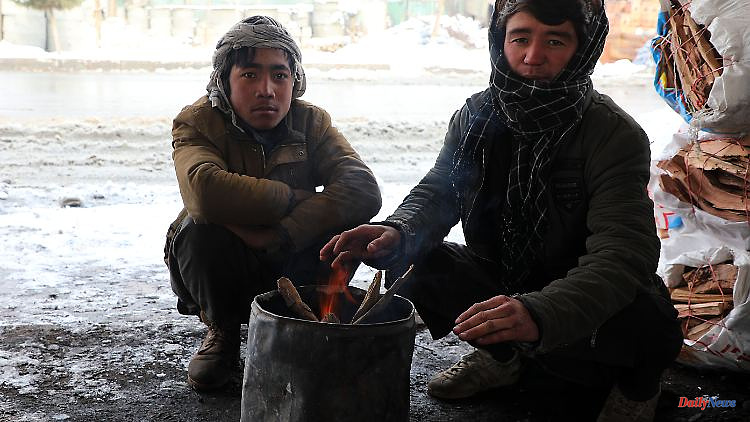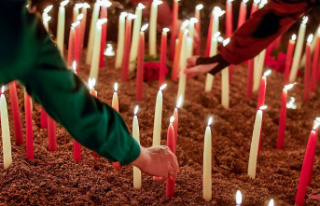Temperatures in some parts of Afghanistan fall below minus 30 degrees. Around 166 people are said to have already fallen victim to the cold. Some die from gas heater leaks, others from untreated diseases. In addition, tens of thousands of animals, the livelihood of many people, die.
More than 150 people have already died in Afghanistan as a result of the cold wave. As the Ministry of Disaster Management in Kabul announced, the number of fatalities has risen to at least 166 since the cold snap began more than two weeks ago. In addition, around 100 houses were destroyed or damaged. In addition, almost 80,000 animals died in the cold, an important source of food and income for many Afghans.
Temperatures in Afghanistan have dropped to minus 33 degrees since January 10th. There are also heavy snowfalls, icy storms and power outages. According to Afghan meteorologists, this winter is "by far the coldest in recent years."
According to the World Health Organization (WHO), 17 people died this week alone in a single village in the northeastern province of Badakhshan from "acute respiratory infections". According to the WHO, the area is difficult to reach for helpers due to the difficult weather conditions. In a statement released via video, a ministry official also cited fires and leaks in gas heaters used by Afghan families to heat their homes as causes of death.
Afghanistan is internationally isolated because of its radical Islamic Taliban government. One of the worst humanitarian crises in the world was already raging in the country before the cold snap. More than half of its 38 million inhabitants have no secure food supply, three million children are at risk of malnutrition.
International humanitarian aid to Afghanistan was further curtailed after the Taliban's December 24 decision to bar women from aid work. An exception was later made for women in the health sector, and some NGOs then resumed their work.












